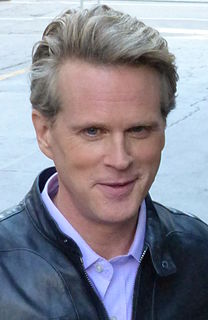A Quote by Alfred Armand Montapert
The monument of a great man is not of granite or marble or bronze. It consists of his goodness, his deeds, his love and his compassion.
Related Quotes
God has sovereignly pulled back the curtain on His glory. He has disclosed Himself on the platform of both creation and redemption that we might stand awestruck in His presence, beholding the sweet symmetry of His attributes, pondering the unfathomable depths of His greatness, baffled by the wisdom of His deeds and the limitless extent of His goodness. This is His beauty.
There was movement along the fringe of Chauncey's vision, and he snapped his head to the left. At first glance what appeared to be a large angel topping a nearby monument rose to full height. Neither stone nor marble, the boy had arms and legs. His torso was naked, his feet were bare, and peasant trousers hung low on his waist. He hopped down from the monument, the ends of his hair dripping rain. It slid down his face, which was dark as a Spaniard's.
I think with great affection and deep gratitude of my venerable predecessor, Benedict XVI, who during these years of his pontificate has enriched and strengthened the Church with his teaching, his goodness, his guidance, his faith, his humility, and his gentleness, which will remain a spiritual heritage for all.
If a man withdraws his mind from the love of beauty, and applies it as sincerely to the love of the virtuous; if, in serving his parents, he can exert his utmost strength; if, in serving his prince, he can devote his life; if in his intercourse with his friends, his words are sincere - although men say that he has not learned, I will certainly say that he has.
I was blessed enough to meet Pope John Paul when I was about 19 or 20 years old in the Vatican; I had that privilege, .. My mother took me to visit him and I remember distinctly his incredible charisma and personal charm and his warmth and compassion. You felt it immediately the minute you met him, and that spirit I came away with, having met the man, is something that I've been constantly working on to infuse the character with, so that we can have his spirit and his love and his compassion, because that's really the essence of the man.



































